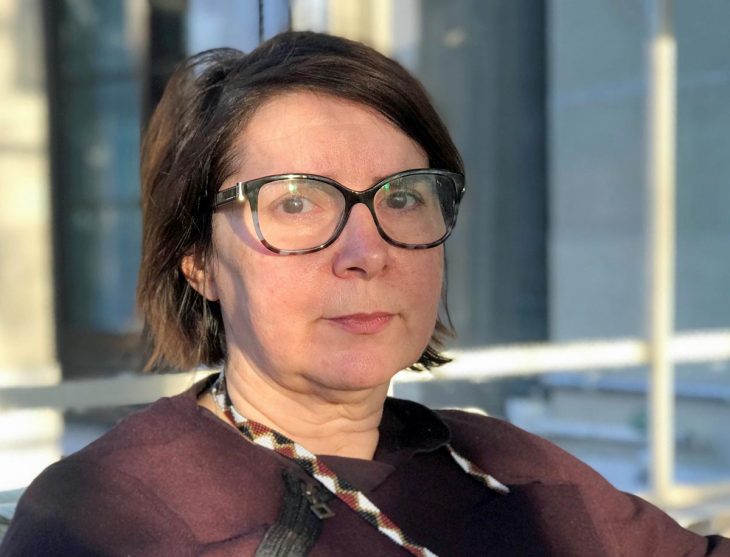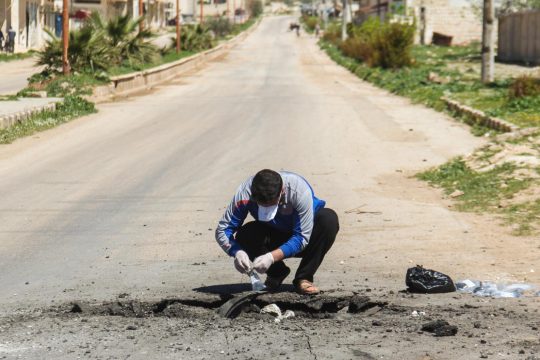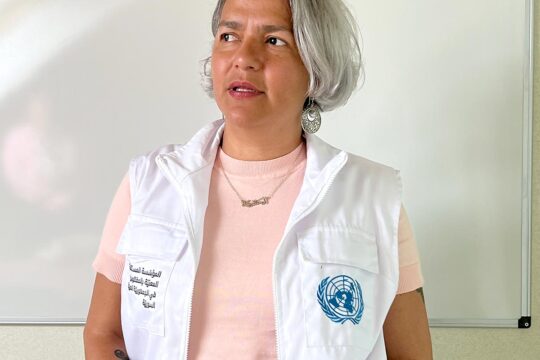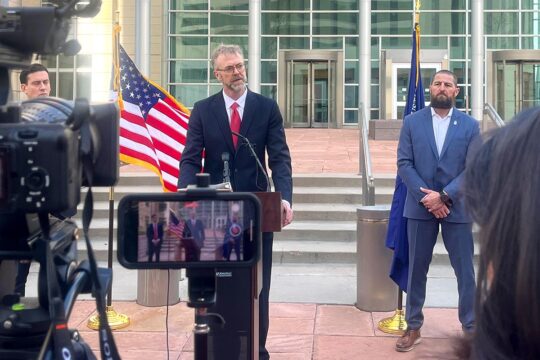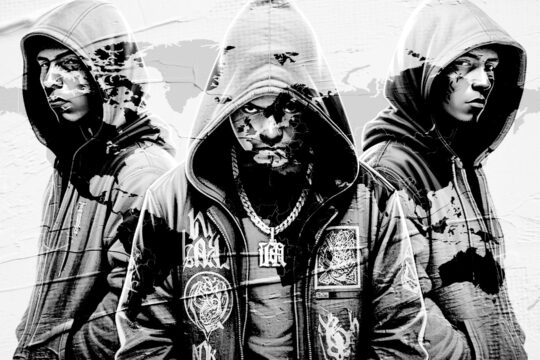JUSTICEINFO.NET: Is the International, Impartial and Independent Mechanism fully operational?
CATHERINE MARCHI-UHEL: We have finished the preparatory work, but the mechanism started to become operational before that. As soon as we had set up our evidence management system and made it secure in May 2018, we were able to start gathering elements of information, including some of the most sensitive. This evidence gathering, which is at the heart of our mechanism, allows it to become the central repository of evidence on mass crimes committed in Syria.
To do this, we have launched negotiations to establish a legal framework for the transfer of information and pieces of evidence with a certain number of people, starting with the UN commission of inquiry on Syria, but also Syrian civil society, international and State actors. Such a framework has not yet been established with everyone, even if we already have a significant number of agreements. We do not have access to Syrian territory, but our investigators have already been to a number of countries to meet people who hold pieces of evidence and agree to share it with us.
The recruitment of our staff – from investigators to analysts, including of digital video and audio data – allows us to develop a structural investigation offering an overview of data collected. This includes, for example, judicial elements that we need to establish so that an act can be prosecuted as a war crime or crime against humanity, information on the context in which the crimes were committed, the parties to the conflict and also the various people who could be implicated in the commission of such crimes, which structure they are working for and how they interact.
Our structural investigation, which is well advanced, has already allowed us to open investigative files within which we aim to establish individual responsibilities in the commission of crimes.
This work is broader than that conducted within the specific framework of a criminal case. But it is indispensable to identify recurring scenarios and make our case selection. Our structural investigation, which is well advanced, has already allowed us to open investigative files within which we aim to establish individual responsibilities in the commission of crimes.
For the time being, we are funded by voluntary contributions, a situation that is not sustainable in the long term. The UN General Assembly has asked the Secretary General to include our funding needs in the UN's regular budget in 2020. For this year, we have received substantial pledges from States. But they are not enough to cover the needs for the whole year.
What are the first judicial results of your work?
The structural investigation is broad, since our mandate is to identify the most serious crimes, whichever party to the conflict the perpetrators belong to. We will not have the capacity to address all the crimes committed in Syria. But this long-term work allows us to make a relevant selection of crimes. One of the goals of our work is to identify the suffering of victims and to be able to identify crimes that make sense to them. The choice of cases is essential for victims, including those who will not be able to obtain justice directly for what they have suffered.
We are beginning to have a mode of cooperation between [national] war crimes units that gives hope that justice will be done in a number of cases.
Part of our work over the past year has been to engage directly with war crimes units that have ongoing investigations into crimes committed in Syria. These developments are very important. Even if no international court is currently seized of the crimes committed in Syria, we are beginning to have a mode of cooperation between [national] war crimes units that gives hope that justice will be done in a number of cases.
Last year, the French and German authorities decided to set up a joint investigation team by combining their resources. This followed an international arrest warrant issued by the German Federal Prosecutor's Office against a senior official in the Syrian intelligence services and an international arrest warrant issued by the French against the same person, another intelligence official and a third person. The existence of these investigations makes the prospect of results from our work more tangible and allows us to think concretely about the type of collaboration we can have with the various competent authorities.
Have you been able to engage in other collaborations?
We have received more than a dozen requests for assistance from national prosecutors who have ongoing investigations concerning Syria and we know that other prosecutors are preparing to take up the matter with us.
For crimes committed in Syria, it is Germany that has the closest form of universal jurisdiction, without any connection with that country.
With regard to the jurisdiction exercised by the various war crimes units, for crimes committed in Syria, it is Germany that has the closest form of universal jurisdiction, without any connection with that country. Other countries have a form of extended extraterritorial jurisdiction.
What place do you give to victims?
Syrian civil society has a central place. Its members, some of whom are themselves victims, have taken enormous risks in documenting crimes and making them known. We have a platform for engagement with members of Syrian civil society in Lausanne. It brings about 30 NGOs together with the Mechanism twice a year. We continue to engage other Syrian civil society actors individually, in groups, and also to inform them about our work through newsletters.
Many dictatorial regimes document their crimes through their administration. Is this also the case in Syria?
Internal documents of several parties to the conflict have been smuggled out and describe the conduct of their operations. They could therefore be used as evidence to prove the commission of some of the most serious crimes, such as war crimes or crimes against humanity.
After major development at the turn of the century, international justice is going through a crisis that undermines its credibility, particularly that of the International Criminal Court (ICC). How do you see its future?
In the Syrian situation, the ICC could not be seized. The Syrian Arab Republic has not ratified the Rome Statute and blockages in the UN Security Council have prevented this situation from being referred to the Court. This is not normal given the seriousness of the crimes committed. But the current situation, where national investigative, prosecutorial and trial authorities are taking their part in the effort to establish individual criminal responsibility for these crimes, is not so far removed from the principles laid down by the Rome Statute, the founding text of the ICC. This court is a court of last resort. It is intended to try some of the most serious crimes, provided that other jurisdictions are not doing so, according to a principle of complementarity.
The fact that a number of national courts have assumed their responsibilities by launching investigations is a very important step that is at the heart of the Rome Statute. In an ideal situation, a combination of these different avenues would be required to deal with a situation as serious and lasting as the war in Syria. It is this combination that works, as we have seen in Rwanda or for the former Yugoslavia.
This is a very strong signal to the perpetrators of crimes. And it is a message of hope for the victims. These crimes are not time-barred. And we are taking every opportunity to make sure that justice can be done.
We are not currently benefiting from this situation for Syria. But the mechanism established by the UN General Assembly in December 2016 shows that, despite the deadlocks, the collection of evidence, analysis and preparation of criminal files must still be done. This is a very strong signal to the perpetrators of crimes. And it is a message of hope for the victims. These crimes are not time-barred. And we are taking every opportunity to make sure that justice can be done.
What lessons have you learned from the past experiences of international justice?
They have taught us that it takes real substantive and long-term work to prosecute this type of crime. They have also taught us the importance of adopting a proactive approach to ensure that sexual violence, gender-based crimes and crimes against children are not forgotten in the prosecution process and are properly documented. We are working much more closely with civil society than in the past, as required by my mandate.
One of the criticisms addressed to international courts on crimes against humanity is their cost and duration. Will your mechanism speed up proceedings on Syria?
Our work should save time for investigations. It also helps to preserve evidence for the future. It will not be necessary to start from scratch when the political situation allows international trials to be opened or even, one day, in Syria. It is much more difficult to document these crimes 30 years after the events, as happened with the Khmer Rouge tribunal in Cambodia.
Our work should save time for investigations. It also helps to preserve evidence for the future. It is much more difficult to document these crimes 30 years after the events.
The trials against some Khmer Rouge leaders have [also] shown how complex it is to identify and choose crimes that represent the suffering of victims, but also how difficult it is to manage these trials. It is always extremely difficult to conduct a major trial that covers all dimensions of the atrocities committed. These trials must retain a manageable dimension. It is the multiplication of judicial channels that, in my opinion, is the best way to give the full dimension to the crimes committed and their context.
The bridge we are building between commissions of inquiry and the various avenues of justice available is based on our preparatory work, which is very strongly rooted in criminal methodology. Moreover, the Human Rights Council has decided to establish a similar mechanism for Myanmar to address the crimes against the Rohingya.


